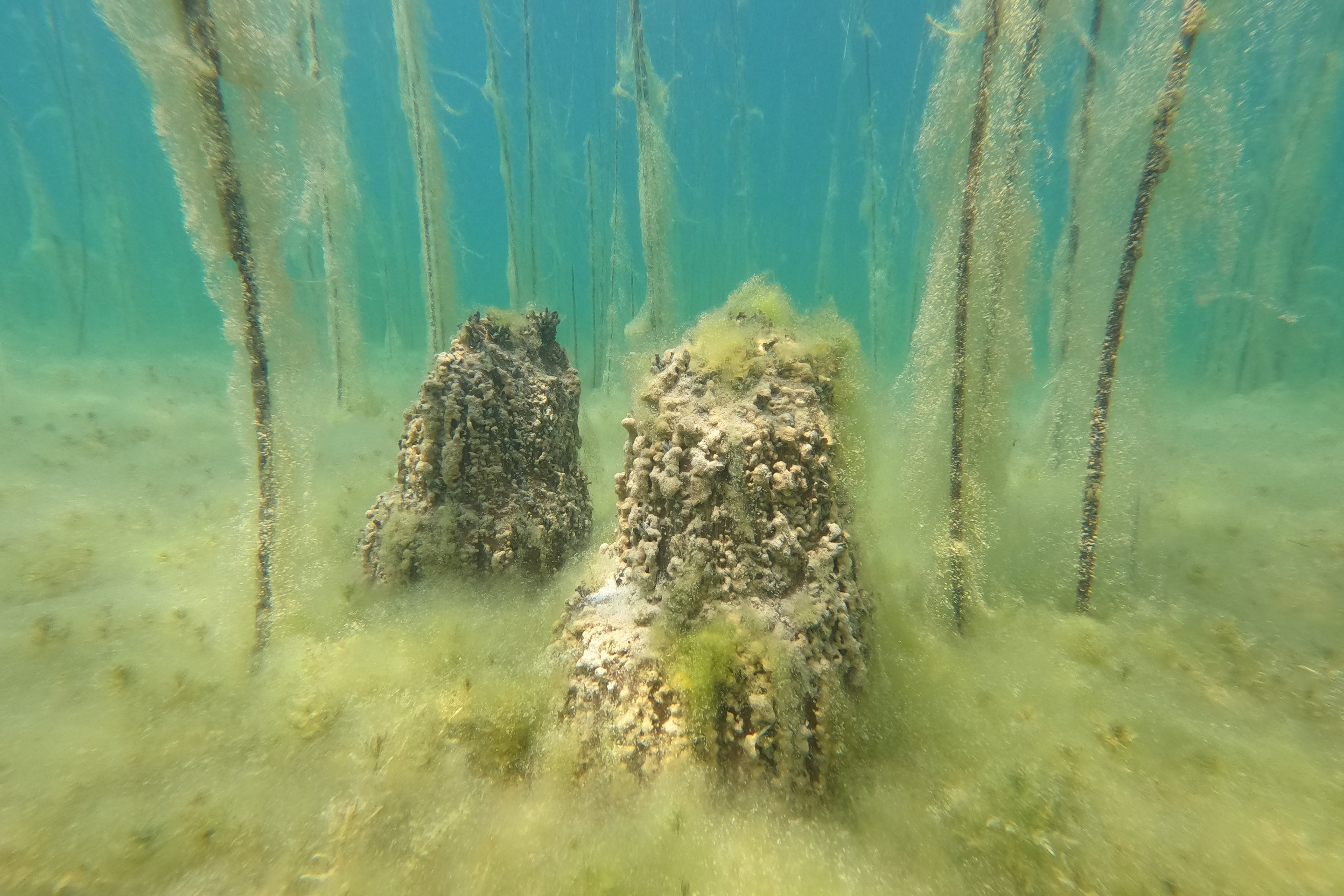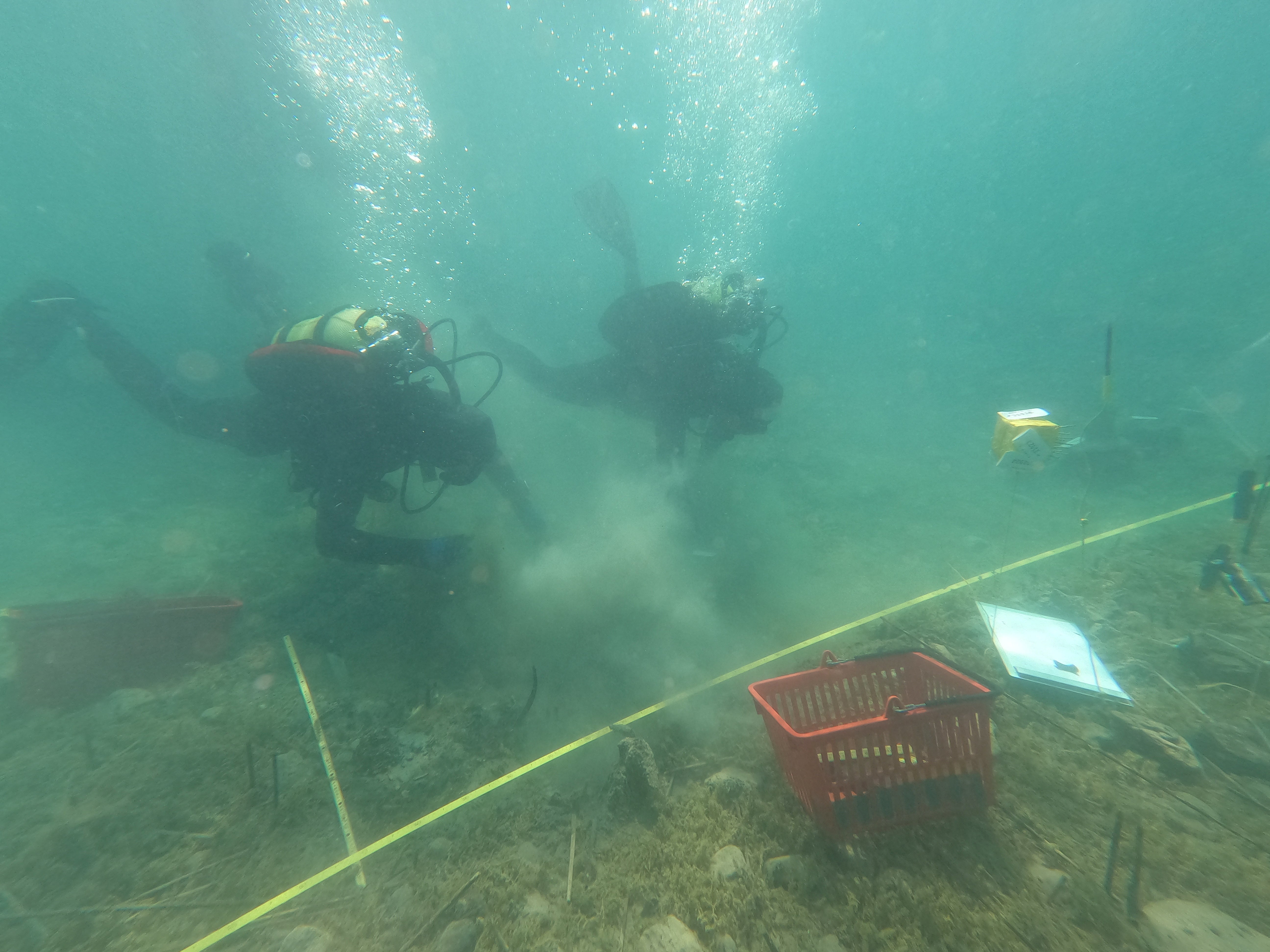Archaeologists are convinced they have uncovered the oldest human settlement built on a European lake.
The team from Switzerland and Albania, who are working on the shores of Ohrid Lake, believe they have found of an organised hunting and farming community living up to 8,000 years ago.
Spending hours each day about three metres (9.8 feet) underwater, the team is painstakingly retrieving wooden stilts that supported houses, as well as collecting bones of domesticated and wild animals, copper objects and ceramics, featuring detailed carvings.
Albert Hafner, from the University of Bern, said similar settlements have been found in Alpine and Mediterranean regions, but the settlements in the village of Lin are half a millennium older, dating back between 6,000 and 8,000 years.
"Because it is underwater, the organic material is well-preserved, and this allows us to find out what these people have been eating, what they have been planting," Hafner said.

Multiple studies show that Lake Ohrid, shared by North Macedonia and Albania, is the oldest lake in Europe, at over one million years.
The age of the findings is determined through radiocarbon dating and dendrochronology, which measures annual growth rings in trees. More than one thousand wood samples have been collected from the site, which may have hosted several hundred people.
It is believed to cover around six hectares, but so far, only about 1 per cent has been excavated after six years of work.
Hafner said findings show that people who lived on the lake helped to spread agriculture and livestock to other parts of Europe.

"They were still doing hunting and collecting things, but the stable income for nutrition was coming from agriculture," he said.
Albanian archaeologist Adrian Anastasi said it could take decades to fully explore the area.
"(By) the way they had lived, eaten, hunted, fished, and by the way the architecture was used to build their settlement, we can say they were very smart for that time," Anastasi said.







